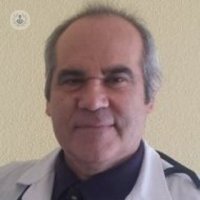What is the best way to quit smoking?
Written by:How can we stop smoking? What techniques currently exist?
Leaving tobacco consumption depends mainly on the decision of the smoker. We know that a smoker goes through different stages of motivation-decision to quit his habit. Depending on this level of motivation and decision, there are different degrees of intensity in the support we can provide. The least convinced smokers can be motivated to quit and the most convinced can be initiated in abandonment with greater probability of success. You can quit smoking and all clinical aids are effective, from minimal advice to combined programs of psychological support with pharmacological therapy. Other alternatives such as homeopathy, acupuncture, hypnosis, etc., do not have sufficient support in scientific evidence to be recommended at the same level.

Which are the most effective? What level of effectiveness do they have?
The most effective measure in Pneumology to help in the cessation of tobacco use is the treatment, through a well-structured combined clinical program, which adds psychological support measures to combat psychological dependence and the use of drugs to counteract the withdrawal syndrome.. Combined treatment achieves abstinence rates superior to psychological treatment or pharmacological treatment alone (27.6% vs. 14.6% or 21.7%, respectively). An adequate pharmacological treatment can quadruple the success rate of abandonment. The most effective pharmacological measures at the present time are those that use varenicline or nicotine replacement therapy in association.
Is the electronic cigarette really an alternative to stop smoking?
The electronic cigarette is not an alternative to quit smoking for many reasons. It is a product that is not adequately regulated by the health authorities, its manufacturing process and the composition of many of its components are unknown.. They have been able to identify some of them as glycerin and propylene glycol with irritative effects on the airway. It also contains various heavy metals (nickel, chromium and lead) in concentrations higher than the smoke of a conventional cigarette that are known carcinogenic agents. Also when the use of the electronic cigarette involves the handling of nicotine there is a risk of accidental poisoning that could have lethal consequences. On the other hand, studies of efficacy and safety for its use as a nicotine replacement therapy to help with detoxification, do not provide solid conclusions.. The electronic cigarette is an uncontrolled product, harmful to health and without proven efficacy as an alternative to quit smoking, so at the present time it can not be recommended for this purpose.
Are rolling cigarettes less harmful than those sold in a pack?
Rolling cigarettes are as harmful to health as conventional cigarettes since the composition of their smoke is similar. Moreover, there are studies that indicate that the concentration of substances such as carbon monoxide. main responsible for vascular damage. nicotine and tar, is 30-50% higher than that of manufactured cigarettes. Therefore rolling cigarettes are just as or more harmful than conventional cigarettes.
To apply a treatment is taken into account if the habit of smoking is psychological, an addiction or a social action?
Any addiction, and tobacco consumption is a chronic disease category since it has its own code in the international classification of diseases (ICD-10), has an associated psychological factor that often includes a social component as a means of relationship with other smokers. That is why the combined programs of smoking cessation that include psychological support are more effective. Psychological support incorporates cognitive-behavioral therapy techniques that help modify certain habits or customs associated with tobacco use, often deeply rooted in false beliefs.. Psychological support should be as intense and prolonged as possible to improve its effectiveness. In this regard, the usual follow-up of a patient in detoxification usually lasts one year.
On what factors does the effectiveness of the treatment depend? Why do some people find it harder to stop smoking than others?
There are numerous factors that influence the effectiveness of a smoking cessation treatment. This fact is in direct relation with the different difficulty that different smokers can find to abandon this dependence; and even with the different difficulty that the same smoker can have in repeated attempts. These factors may be due to the smoker himself (age, gender, marital status, socioeconomic status, social environment, level of dependence, motivation, psychological profile, associated diseases ...), but may also be related to treatment (adherence, effects adverse effects of medication, inadequate behavioral support, a poorly designed therapeutic strategy ...). In many cases there is a genetic conditioning background (polymorphisms of nicotinic receptors in the Central Nervous System, nicotine metabolism profile). The key to success lies in a correct initial diagnosis to determine adequately the level of motivation and decision of the patient, to design a combined (psycho-pharmacological) and individualized treatment according to the particular needs of each smoker. All this integrated into a structured program with a well-organized long-term follow-up.


